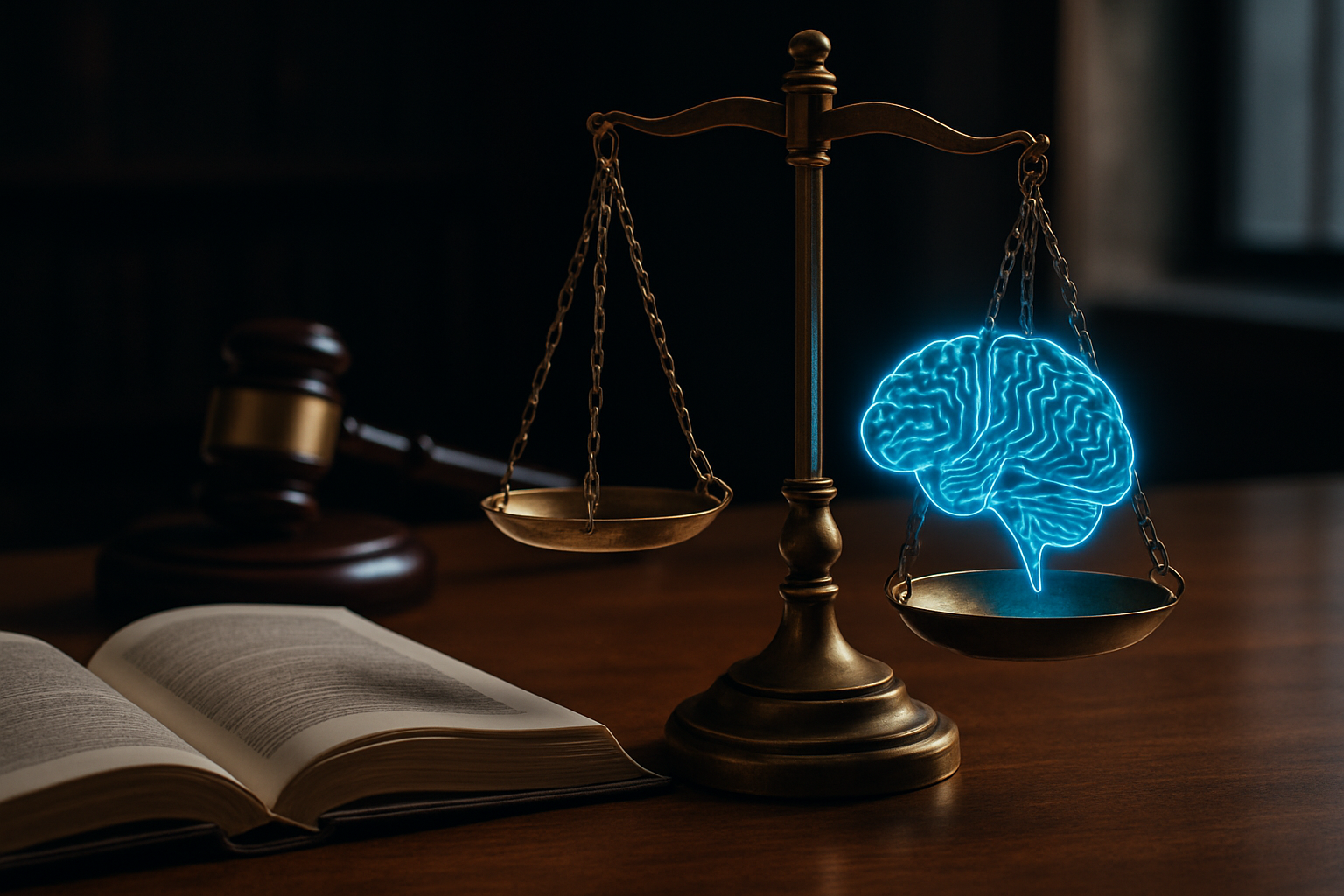Decoding the Legal Labyrinth of Algorithmic Decision-Making
Introduction: In an era where algorithms increasingly shape our lives, the legal landscape grapples with unprecedented challenges. From job applications to loan approvals, algorithmic decision-making systems wield immense power, raising critical questions about fairness, transparency, and accountability. This article delves into the evolving legal framework surrounding these systems, exploring the intricate balance between technological innovation and individual rights.

Legal Foundations and Existing Frameworks
The legal landscape surrounding algorithmic decision-making is still in its infancy, with existing laws struggling to keep pace with technological advancements. Current legal frameworks, such as anti-discrimination laws and data protection regulations, provide some guardrails but were not specifically designed to address the unique challenges posed by algorithmic systems. The European Union’s General Data Protection Regulation (GDPR) represents one of the most comprehensive attempts to regulate automated decision-making, granting individuals the right to opt out of solely automated decisions with significant effects.
Emerging Legal Challenges
As algorithmic systems become more sophisticated and ubiquitous, novel legal issues are emerging. One key challenge is algorithmic transparency and explainability. Many advanced algorithms, particularly those using deep learning techniques, operate as black boxes, making it difficult to understand how they arrive at their decisions. This opacity poses significant hurdles for legal accountability and due process, especially in high-stakes domains like criminal sentencing or healthcare diagnostics.
Another pressing concern is algorithmic bias and discrimination. While algorithms are often touted as objective decision-makers, they can perpetuate or even amplify existing societal biases if trained on biased data or designed with flawed assumptions. Legal scholars and policymakers are grappling with how to define and address algorithmic discrimination, which may be more subtle and pervasive than traditional forms of bias.
Regulatory Approaches and Proposed Solutions
In response to these challenges, various regulatory approaches are being explored globally. Some jurisdictions are considering algorithmic impact assessments, requiring organizations to evaluate the potential risks and impacts of their algorithmic systems before deployment. Others are focusing on algorithmic auditing, developing methods to test and verify the fairness and accuracy of decision-making systems.
The concept of algorithmic accountability is gaining traction, with proposals for legal frameworks that would hold developers and deployers of algorithmic systems responsible for their outcomes. This includes discussions about creating a fiduciary duty for algorithms, similar to the obligations placed on professionals like doctors or lawyers.
The Role of Courts and Case Law
As legal challenges involving algorithmic decision-making make their way through the courts, judicial interpretations are beginning to shape the legal landscape. Notable cases have addressed issues such as the use of risk assessment algorithms in criminal sentencing and the role of automated systems in employment decisions. These rulings are establishing precedents that will likely influence future legislation and policy-making.
Balancing Innovation and Rights
One of the central tensions in regulating algorithmic decision-making is striking the right balance between fostering technological innovation and protecting individual rights. Overly restrictive regulations could stifle advancements that have the potential to greatly benefit society. Conversely, a lack of meaningful oversight could lead to widespread violations of privacy, fairness, and due process.
International Cooperation and Harmonization
Given the global nature of technology and data flows, there is growing recognition of the need for international cooperation in developing legal frameworks for algorithmic governance. Efforts are underway to harmonize approaches across jurisdictions, with organizations like the OECD developing principles for responsible AI and algorithmic systems.
The Path Forward
As we navigate this complex legal terrain, it is clear that a multidisciplinary approach is necessary. Lawyers, technologists, ethicists, and policymakers must collaborate to develop nuanced and effective legal solutions. This may involve creating new legal concepts and principles specifically tailored to the realities of algorithmic decision-making.
The legal framework for algorithmic decision-making systems is still in its formative stages, but its importance cannot be overstated. As these systems increasingly shape our opportunities, rights, and societal structures, the law must evolve to ensure they are deployed responsibly and ethically. The challenge lies in crafting regulations that are flexible enough to accommodate rapid technological change while providing robust protections for individual rights and societal values.






